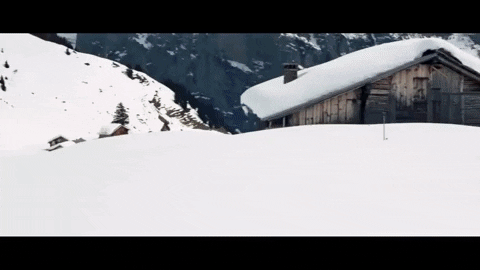"....and, 23rdly -- Out There,
in The Space-Time Vortex,
'Time', and 'Distance'
'Time', and 'Distance'
have No Meaning...."
“We’re going,” he said excitedly, and shivered with energy.
“Where? How?” said Arthur.
“I don’t know,” said Ford, “but I just feel that The Time is Right. Things are Going to Happen. We’re on Our Way.”
He lowered his voice to a whisper.
“I have detected,” he said, “disturbances in The Wash.”
He gazed keenly into the distance and looked as if he would quite like The Wind to blow his hair back dramatically at that point, but the wind was busy fooling around with some leaves a little way off.
Arthur asked him to repeat what he had just said because he hadn’t quite understood his meaning. Ford repeated it.
“The Wash?” said Arthur.
“The Space-Time Wash,” said Ford and, as The Wind blew briefly past at that moment, he bared his teeth into it.
Arthur nodded, and then cleared his throat.
“Are we talking about,” he asked cautiously, “some sort of Vogon laundromat, or what are we talking about?”
“Eddies,” said Ford, “in the Space-Time continuum.”
“Ah,” nodded Arthur, “is he. Is he.” He pushed his hands into the pockets of his dressing gown and looked knowledgeably into the distance.
“What?” said Ford.
“Er, who,” said Arthur, “is Eddy, then, exactly, then?” Ford looked angrily at him. “Will you listen?” he snapped.
“I have been listening,” said Arthur, “but I’m not sure it’s helped.”
Ford grasped him by the lapels of his dressing gown and spoke to him as slowly and distinctly and patiently as if he were somebody from the telephone company accounts department.
“There seem …” he said, “to be some pools …” he said, “of instability … he said, “in the fabric …” he said.
Arthur looked foolishly at the cloth of his dressing gown where Ford was holding it. Ford swept on before Arthur could turn the foolish look into a foolish remark.
“ … in the fabric of space-time,” he said.
“Ah, that,” said Arthur.
“Yes, that,” confirmed Ford.
They stood there alone on a hill on prehistoric Earth and stared each other resolutely in the face.
“And it’s done what?” said Arthur.
“It,” said Ford, “has developed pools of instability.”
“Has it,” said Arthur, his eyes not wavering for a moment.
“It has,” said Ford, with a similar degree of ocular immobility.
“Good,” said Arthur.
“See?” said Ford.
“No,” said Arthur.
There was a quiet pause.
“The difficulty with this conversation,” said Arthur after a sort of ponderous look had crawled slowly across his face like a mountaineer negotiating a tricky outcrop, “is that it’s very different from most of the ones I’ve had of late. Which, as I explained, have mostly been with trees. They weren’t like this. Except perhaps some of the ones I’ve had with elms that sometimes got a bit bogged down.”
“Arthur,” said Ford.
“Hello? Yes?” said Arthur.
“Just believe everything I tell you, and it will all be very, very simple.”
“Ah, well, I’m not sure I believe that.”
They sat down and composed their thoughts.
Ford got out his Sub-Etha Sens-O-Matic. It was making vague humming noises and a tiny light on it was flickering faintly.
“Flat battery?” said Arthur.
“No,” said Ford, “there is a moving disturbance in the fabric of space-time, an eddy, a pool of instability, and it’s somewhere in our vicinity.”
“Where?”
Ford moved the device in a slow, lightly bobbing semicircle. Suddenly the light flashed.
“There!” said Ford, shooting out his arm; “there, behind that sofa!”
Arthur looked. Much to his surprise, there was a velvet paisley-covered Chesterfield sofa in the field in front of them. He boggled intelligently at it. Shrewd questions sprang into his mind.
“Why,” he said, “is there a sofa in that field?”
“I told you!” shouted Ford, leaping to his feet. “Eddies in the space-time continuum!”
“And this is his sofa, is it?” asked Arthur, struggling to his feet and, he hoped, though not very optimistically, to his senses.
“Arthur!” shouted Ford at him, “that sofa is there because of the space-time instability I’ve been trying to get your terminally softened brain to come to grips with. It’s been washed up out of the continuum, it’s space-time jetsam, it doesn’t matter what it is, we’ve got to catch it, it’s our only way out of here!”
He scrambled rapidly down the rocky outcrop and made off across the field.
“Catch it?” muttered Arthur, then frowned in bemusement as he saw that the Chesterfield was lazily bobbing and wafting away across the grass.
With a whoop of utterly unexpected delight he leaped down the rock and plunged off in hectic pursuit of Ford Prefect and the irrational piece of furniture.
They careened wildly through the grass, leaping, laughing, shouting instructions to each other to head the thing off this way or that way. The sun shone dreamily on the swaying grass, tiny field animals scattered crazily in their wake.
Arthur felt happy. He was terribly pleased that the day was for once working out so much according to plan. Only twenty minutes ago he had decided he would go mad, and now here he was already chasing a Chesterfield sofa across the fields of prehistoric Earth.
The sofa bobbed this way and that and seemed simultaneously to be as solid as the trees as it drifted past some of them and hazy as a billowing dream as it floated like a ghost through others.
Ford and Arthur pounded chaotically after it, but it dodged and weaved as if following its own complex mathematical topography, which it was. Still they pursued, still it danced and spun, and suddenly turned and dipped as if crossing the lip of a catastrophe graph, and they were practically on top of it. With a heave and a shout they leaped on it, the sun winked out, they fell through a sickening nothingness and emerged unexpectedly in the middle of the pitch at Lord’s Cricket Ground, St. John’s Wood, London, toward the end of the last Test Match of the Australian series in the year 198-, with England only needing twenty-eight runs to win.
Important Fact from Galactic History, Number One : (reproduced from the Siderial Daily Mentioner’s Book of Popular Galactic History)
The night sky over the planet Krikkit is the least interesting sight in the entire Universe.





